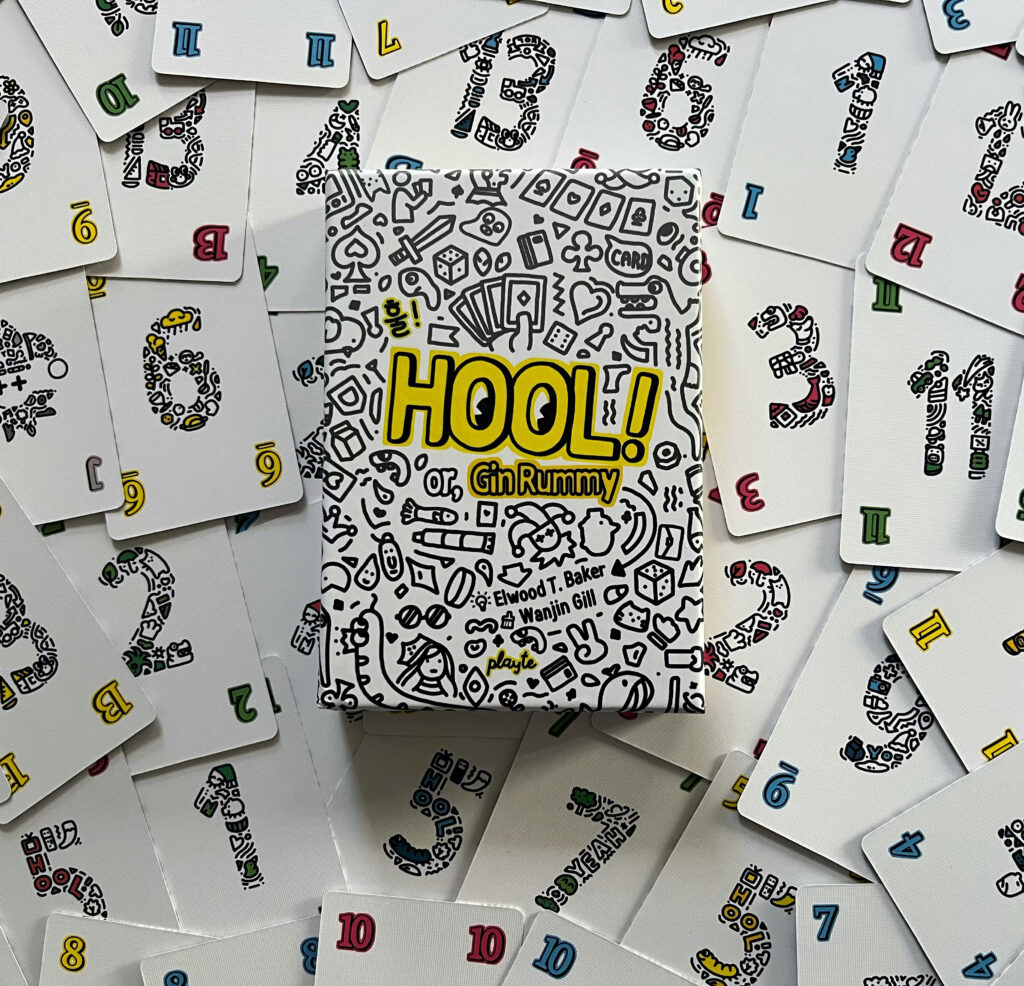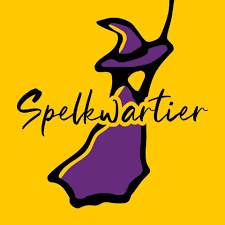With a standard deck of playing cards you can play a wide arrangement of different games. Many popular (commercial) card games you can buy in shops are based on ‘public domain’ or classic card games. Think of the many trick taking games, ladder climbing games, take the games and so on. For instance, do you already know the Korean game Hool (or Hoola)?
One of my favourite games to play with a standard deck of playing cards is Gin Rummy. In this two-player game, players try to be the first to get several sets of cards in their hand by taking a card each turn (either blind from the draw pile or face-up from the discard pile) and discarding a card. Once a player has made enough sets (the whole hand consists of sets or a player has less than a certain amount of ‘points’ in hand), a player can end the round. Players receive penalty points for the cards they still have in hand that are not (or cannot be) part of a set. Like other classic card games, there are plenty of different (house) rules and interpretations.
Players may also be familiar with the common Rummy or Rummikub where players place open sets on the table with cards or plastic tiles. Players try to play away their cards or tiles in different sets or make new sets to be the first to run out of cards or stones in hand. Hool! (or Hoola) is a Korean card game and a variant of the same (Gin) Rummy principle. Korean publisher has bundled this Korean rummy game together with a variant of the classic Gin Rummy in a beautifully illustrated package.
In Hool! like Gin Rummy, players try to empty their hands as quickly as possible by making sets or keeping as few cards/points as possible. During a turn, as in Gin Rummy, the active player must draw the top card from the pile or discard pile, but can only draw the latter if that card is part of a new ‘leg’ for the table. After drawing, the active player can discard a set or series of three cards. If this player has a ‘leg’ in front of him, from this turn or a previous one, he can add to any ‘leg’ already on the table according to the laying rules.

If at the end of a turn (where this player has laid out cards to sets) a player still has cards in hand, this player discards a card. Once a player has no cards left, the round is over. A player can also, similar to Gin Rummy, end a round if that player has less than a certain amount of penalty points in hand. Players get penalty points at the end of a round for remaining hand cards and the player who managed to ‘play out’ is awarded points.
Besides Hool!, in this box you also get the rules for classic Gin Rummy as a welcome bonus. Basically, this game is mostly a nicely repackaged version of classic card games, but with a nice design and a clearer build-up of available cards. A funny introduction to a Korean classic and another old familiar one.



